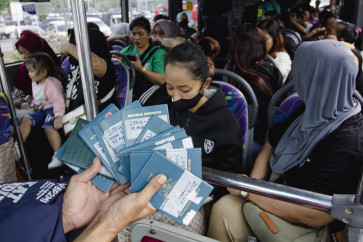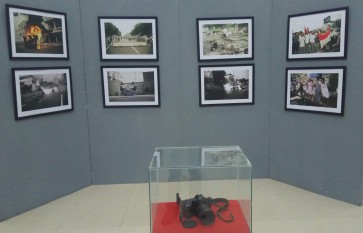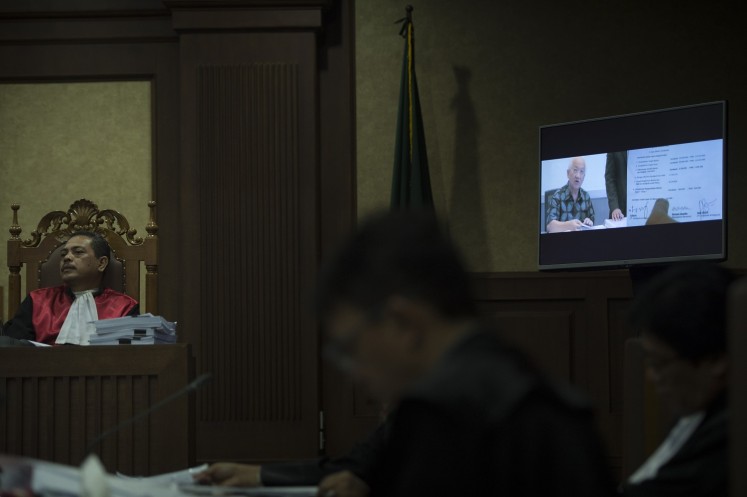Popular Reads
Top Results
Can't find what you're looking for?
View all search resultsPopular Reads
Top Results
Can't find what you're looking for?
View all search resultsCity residents put at risk by greedy spatial planning: IHI
Indonesia’s development-hungry cities have designated less than half of the space required by law to green, open public areas, leaving city residents susceptible to worsening natural disasters, a study shows
Change text size
Gift Premium Articles
to Anyone

I
ndonesia’s development-hungry cities have designated less than half of the space required by law to green, open public areas, leaving city residents susceptible to worsening natural disasters, a study shows.
The Green Indonesia Institute (IHI) made the finding after conducting a study in 10 cities: Jakarta, Palembang, Medan, Bandung, Surabaya, Yogyakarta, Makassar, Balikpapan, Manado and Semarang.
The study analyzed the link between the inadequate green areas and environmental disasters, such as floods, water scarcity, air pollution and garbage problems.
“We found strong links between natural disasters and the absence of green open spaces,” said IHI director Slamet Daryoni.
The 2007 Spatial Planning Law requires each city to set aside 30 percent of its area as green open spaces for the public.
A 2008 ministerial decree stipulates that the administration should provide 20 percent of a city’s green space with the remaining 10 percent to be provided by the private sector.
These rulings voided a 1982 ministerial decree, which obliged each city to set a minimum of 60 percent of its land as green area for public.
As demand for land for upscale shopping centers, offices and residential areas increased, the number of green spaces in cities has declined sharply.
“It has worsened the frequency and intensity of natural disasters, directly affecting the health and livelihoods of urban residents,” said Slamet.
In Jakarta, which covers 65,000 hectares, less than 10 percent of the area is green space.
The worst offender is Palembang, which has only 1,200 hectares of green space, less than 3 percent.
The Indonesian Environment Forum (Walhi) criticized Palembang administration’s plan to sacrifice green, open space for the Southeast Asian (SEA) Games next year.
“We aren’t opposed to Palembang hosting the SEA Games, but don’t spoil the already limited green spaces for the games,” Walhi chairman of South Sumatra chapter, Anwar Sadat said.
Palembang administration plans to convert 3 hectares of its sports facilities for new hotels and restaurants for the SEA Games.
Walhi said that with the lack of green space, natural disasters continued to plague Palembang.
The province recorded at least 45 natural disasters, ranging from floods to landslides, last year, compared to 41 in 2008.
Between January and March 2010, some 86 major floods hit Palembang, claiming nine lives.
The government has long been under pressure to enforce the law and push local administrations to comply with the laws.
Experts blame environmental degradation for exacerbating natural disasters, including droughts, floods and landslides.









